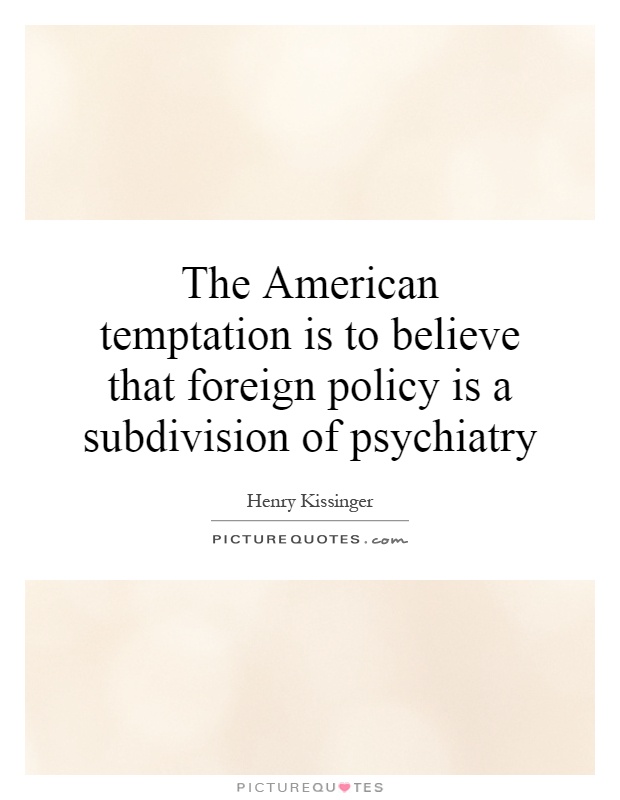The American temptation is to believe that foreign policy is a subdivision of psychiatry

To Believe QuotesAmerican Policy QuotesForeign Policy QuotesAmerican Foreign Policy QuotesHenry Kissinger QuotesHenry A Kissinger Quotes
The American temptation is to believe that foreign policy is a subdivision of psychiatry
Henry Kissinger, a prominent figure in American foreign policy, once famously said, “The American temptation is to believe that foreign policy is a subdivision of psychiatry.” This statement reflects Kissinger’s belief that the United States often approaches international relations through the lens of psychology and personal relationships, rather than strategic interests and geopolitical realities.Kissinger’s own approach to foreign policy was heavily influenced by his background in academia and his expertise in political science and international relations. He believed that understanding the motivations and personalities of world leaders was crucial to crafting effective foreign policy strategies. This approach was evident in his famous shuttle diplomacy during the Arab-Israeli conflict, where he personally engaged with leaders such as Anwar Sadat and Golda Meir to broker peace agreements.
However, Kissinger’s statement also highlights a broader tendency in American foreign policy to prioritize individual relationships and personal dynamics over broader strategic considerations. This can be seen in the emphasis on personal diplomacy and summit meetings in U.S. foreign policy, as well as the tendency to view international conflicts through the lens of good versus evil or hero versus villain narratives.
The belief that foreign policy is a subdivision of psychiatry can also be seen in the American tendency to view international conflicts as products of individual leaders’ psychological quirks or pathologies. This can lead to simplistic and reductionist explanations for complex geopolitical issues, as well as a tendency to personalize conflicts and demonize foreign leaders.
Overall, Kissinger’s statement serves as a cautionary reminder that while understanding the psychology of world leaders can be important in foreign policy decision-making, it is crucial to also consider broader strategic interests, historical context, and geopolitical realities. Foreign policy is not simply a matter of personal relationships and psychological dynamics, but a complex and multifaceted field that requires a nuanced and strategic approach.












 Friendship Quotes
Friendship Quotes Love Quotes
Love Quotes Life Quotes
Life Quotes Funny Quotes
Funny Quotes Motivational Quotes
Motivational Quotes Inspirational Quotes
Inspirational Quotes